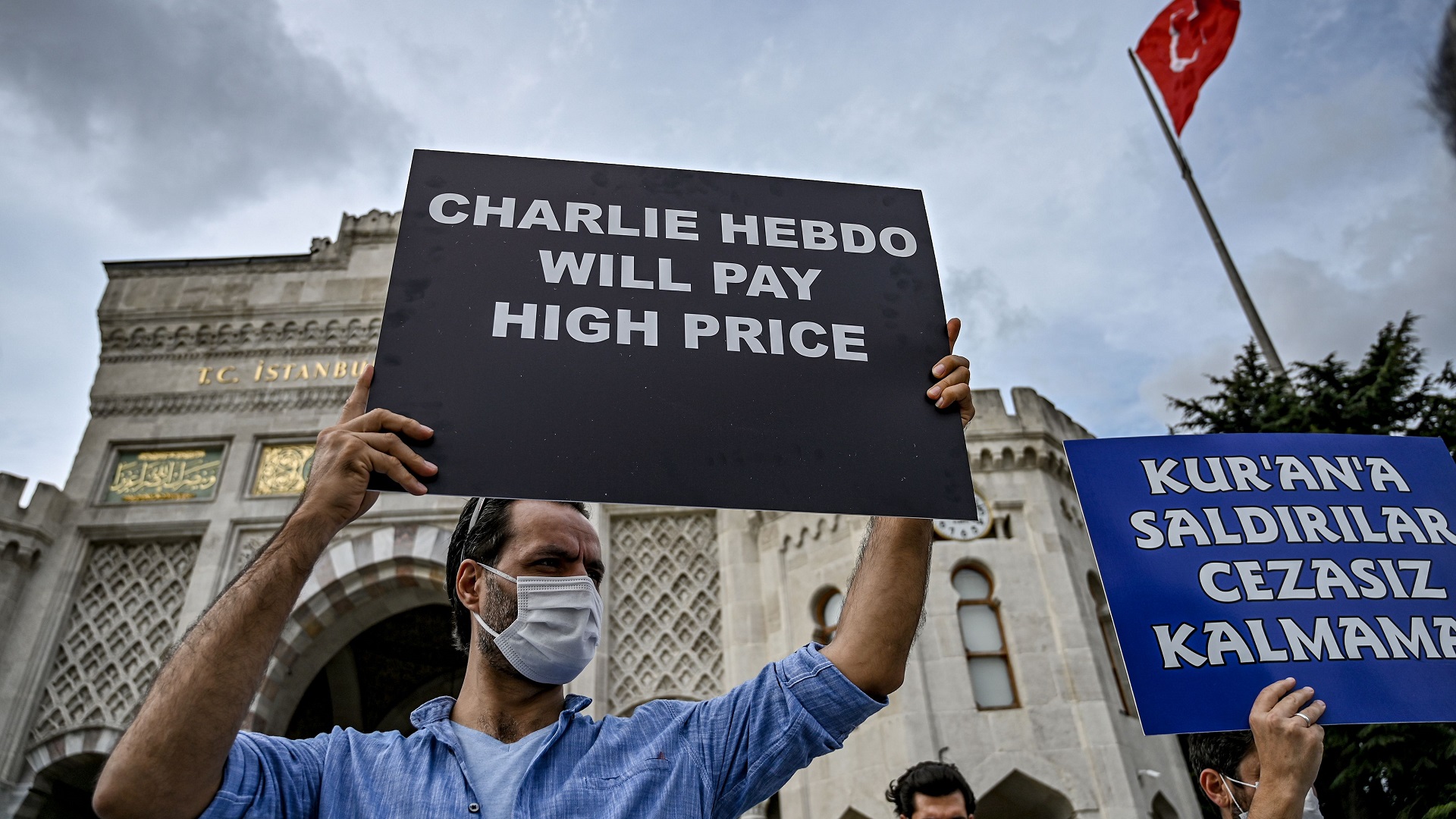Clients have asked us about the potential security impacts in the MENA region stemming from the French satirical magazine Charlie Hebdo’s latest issue.
This assessment was issued to clients of Dragonfly’s Security Intelligence & Analysis Service (SIAS) on 7 January 2022.
This was published on 5 January and focuses on Islamism and includes caricatures of Muslims. So far we have seen no overt signs of an angry public or political response. Nor have extremists mentioned the latest issue in the online forums we monitor. As such, protests or violence linked to this edition seem unlikely. But there remains underlying hostility towards France and French interests in the region over the issues of free speech and blasphemy.
Mainstream media outlets in MENA have not reported on the latest Charlie Hebdo publication. Nor have regional governments or religious leaders publicly commented on it. We have seen no indication that these governments or activists on social media have called for a boycott of French goods in the region, as was the case in late 2020. We suspect that this is because the latest edition of Charlie Hebdo does not include drawings of the Prophet Muhammad, something that many Muslims view as highly offensive.
Protests over previous issues of Charlie Hebdo and the French government’s stance on blasphemy and freedom of expression have taken place in Bahrain, Bangladesh, Egypt, Iran, Iraq, Jordan, Mauritania, Morocco, Pakistan, Palestine, Sudan, Syria, Tunisia, Turkey and Yemen. In some instances, these attracted several thousand participants. However, we have not seen plans for protests over the latest issue of Charlie Hebdo. So any protests that do occur are likely to be small, peaceful, and contained to the vicinity of French diplomatic sites in cities.
Islamist extremist groups and individuals have not mentioned the latest issue on the online channels that we monitor. Al-Qaeda, Islamic State and supporters of both groups have previously encouraged lone-actor attacks against French interests in response to Charlie Hebdo’s depictions of the Prophet Muhammad. In late 2020, comments by French President Emmanuel Macron about freedom of speech and blasphemy prompted such calls. An IS-claimed bombing in Jeddah that targeted the French consul was linked to this, and there was also an unclaimed stabbing outside of the French consulate in the city.
We do not anticipate that the publication of the latest issue of Charlie Hebdo will elevate the terrorism threat to French interests in the Middle East, North Africa or South Asia. But anti-French sentiment has been high in the region over the past couple of years, stemming from similar issues. And this sentiment would almost certainly manifest into large protests and elevate the likelihood of violence targeting French interests if Charlie Hebdo or others publish cartoons or make statements that are highly offensive to Muslims.
Image: Protesters chant slogans and hold signs against France and the French President in Istanbul on 13 September 2020. Photo by Ozan Kose/AFP via Getty Images.




